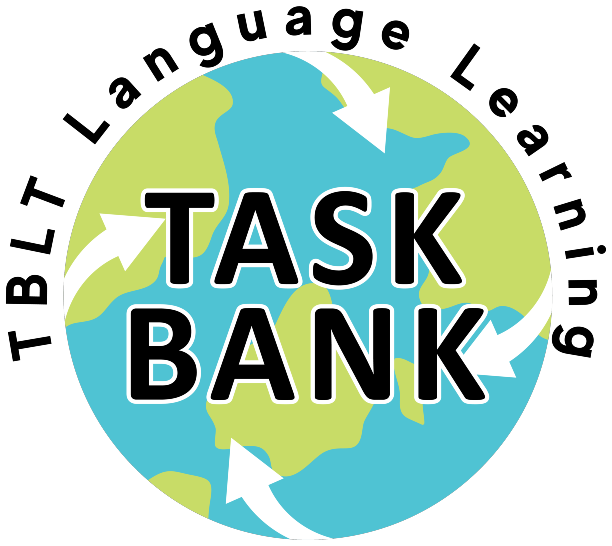Task Details
Title
What can I do when I travel?
In this task the learner does...
the learner collaborates with another learner to agree on a city to visit and an activity to do as an end-of-course trip.
Task Flow
Pre- During- Post task phases
Language Characteristics
Non-linguistic outcome
Focus on meaning
Focus on form
Communicative gap
Reliance on learners' own resources
Task Goals
To solve a communication problem or gap
To make a decision or choice
To reach an agreement
To request information
To express an opinion
Language Skills Practiced
Speaking/Pronunciation
General Domain
Educational
General Topic
Pronunciation of English vowel contrasts /iː-ɪ/ and /æ-ʌ/ contained in minimal pairs.
Target Languages
English
Abilities Fostered
Linguistic competence (ability to communicate with grammatical accuracy)
Discourse competence (ability to communicate in cohesive and coherent ways)
Strategic competence (ability to solve communication issues as they arise)
Cognitive Skills
Checking
Comparing
Gathering info
Organizing
Producing
Mode of Communication
Face-to-face (in person)
Digital (online)
Synchronous
Video-conferencing
Type of Participation
Pair work
Small group work
Focused or Unfocused
Focused task (specific language focus)
Focus Type
Pronunciation
Language Features
English phonemes /iː-ɪ-æ-ʌ/
Input/Output
Input providing
Output prompting
Kind of Input
Original/educational (input created by teachers for L2 students)
Output Type
Accuracy
Type of Input
Aural (listening) input
Pictorial input
Written input
Concrete input
Type of Output
Oral output
Written output
Concrete output
Type of Task
Two-way
Awareness-raising
Comparing and Contrasting
Decision-making
Information-gap
Problem-solving
Task Features/Conditions
Here-and-now
Reasoning demands
No prior knowledge required/assumed
Two/multiple-way information flow (dialogic)
Outcome
Closed solution
Convergent outcome
Appropriate Learners
8-12 years
13-18 years
18-22 years
22-40 years
40-60 years
60+ years
Proficiency Framework
Yes - the Common European Reference Framework (CEFR)
Proficiency Levels
CEFR: B2
CEFR: B1
CEFR: A2
CEFR: A1
Learner Individual Differences
Literate learners
High willingness to communicate
Introverted learners
Extroverted learners
Foreign language learners
Second/additional language learners
Context
School setting - Primary and secondary school
Research setting - University
Face-to-face setting
Online setting
Second/additional language context
Foreign language context
Context Details
Task-based program
Task-supported program
Used in Research?
Yes
Citation
In the process of submitting the article where the experiment with these tasks is explained
Available on IRIS?
No
Part of a series?
Yes (please provide details) I have a number of pronunciation activities with the same pronunciation-targets which are difficult for L1 Catalan/Spanish learners of L2 English.
Uploader Name
Ingrid Mora-Plaza
Uploader Email
imoraplaza@ub.edu
Uploader Affiliation
Universitat de Barcelona
Uploader Identity
Teacher - Lecturer (1st and 2nd year, Phonetics & Phonology I (segmentals) and II (suprasegmentals)
Researcher - Second language pronunciation learning and teaching, L2 speech acquisition, task-based pronunciation teaching, individual differences
Uploader Relationship
I am the sole creator of this task
Creative Commons
Agreed


 Teacher instructions and student instructions+materials
Teacher instructions and student instructions+materials